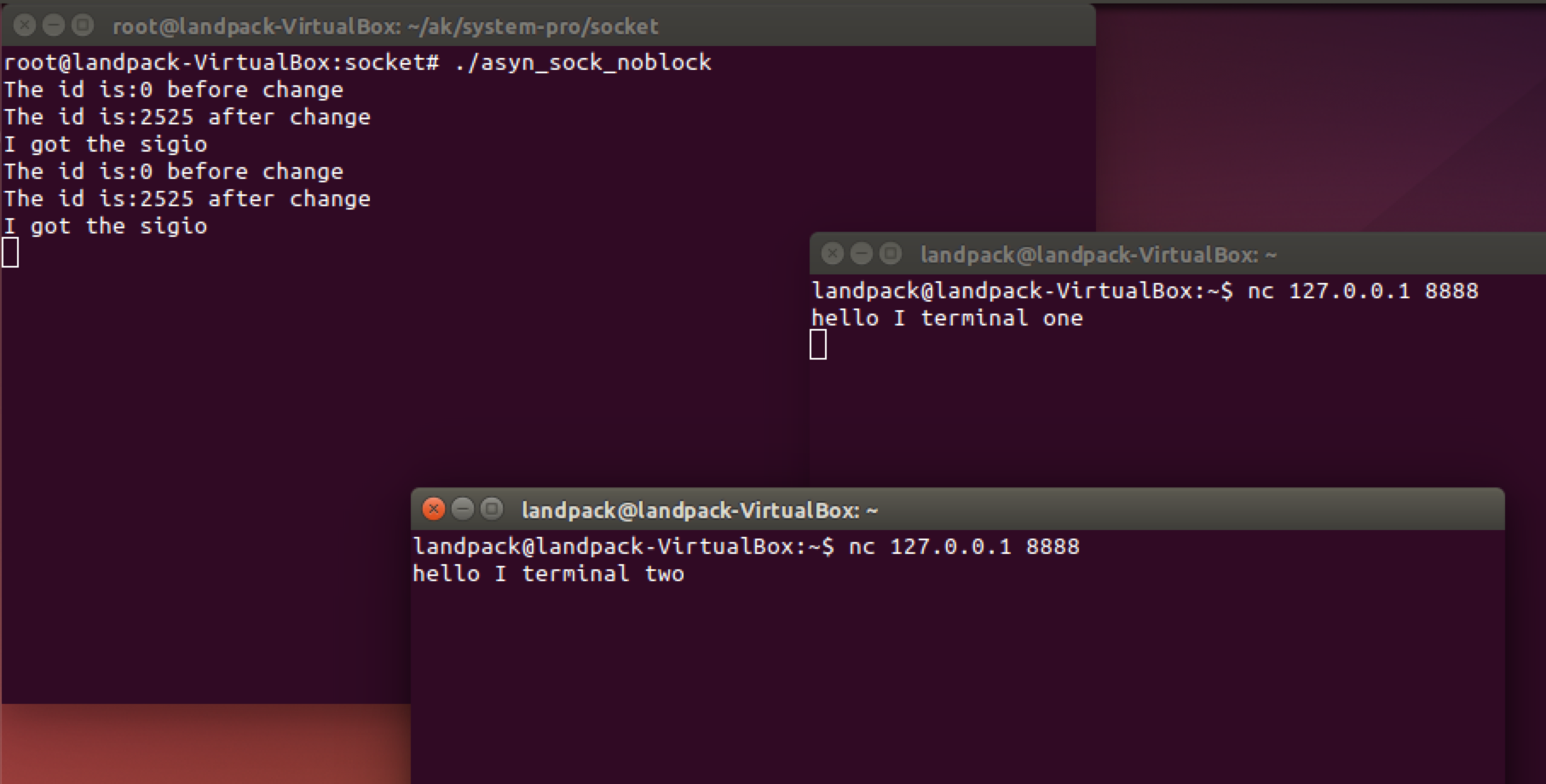Linux asyn-io for socket
#include <stdio.h> #include <string.h> #include <stdlib.h> #include <unistd.h> #include <fcntl.h> #include <sys/types.h> #include <sys/socket.h> #include <netinet/in.h> #include <errno.h> #include <signal.h> #define errExit(msg) (perror(msg),(exit(EXIT_FAILURE))) #define LISTEN_PORT 8888 #define BUF_SIZE 1024 static volatile sig_atomic_t gotSigio = 0; static void sigioHandler(int sig) { puts("I got the sigio"); gotSigio = 1; } int make_sock(void) { int sockfd; struct sockaddr_in clientaddr; memset(&clientaddr,SOCK_STREAM,sizeof(clientaddr)); clientaddr.sin_family = AF_INET; clientaddr.sin_port = htons(LISTEN_PORT); clientaddr.sin_addr.s_addr = htonl(INADDR_ANY); if((sockfd=socket(AF_INET,SOCK_STREAM,0)) < 0) { errExit("socket"); } if(bind(sockfd,(struct sockaddr*)&clientaddr,sizeof(clientaddr)) < 0) { errExit("bind"); } listen(sockfd,5); return sockfd; } int main(void) { int sockfd,connfd; struct sockaddr_in clientaddr; int n; char buf[BUF_SIZE]; struct sigaction sa; sigemptyset(&sa.sa_mask); sa.sa_flags = SA_RESTART; sa.sa_handler = sigioHandler; if(sigaction(SIGIO,&sa,NULL) == -1) { errExit("sigaction"); } sockfd= make_sock(); while(1){ if((connfd= accept(sockfd,(struct sockaddr*)NULL,NULL)) < 0) { errExit("accept"); } //todo .. int id ; id = fcntl(connfd,F_GETOWN); printf("The id is:%d before change\n",id); fcntl(connfd,F_SETOWN,getpid()); id = fcntl(connfd,F_GETOWN); printf("The id is:%d after change\n",id); int flags; flags = fcntl(connfd,F_GETFL); // if(fcntl(connfd,F_SETFL,flags|O_ASYNC|O_NONBLOCK)==-1){ // errExit("fcntl(F_SETFL)"); // } //the old linux version support FASYNC instean of O_ASYNC if(fcntl(connfd,F_SETFL,flags|FASYNC|O_NONBLOCK)==-1){ errExit("fcntl(F_SETFL)"); } //while(1); } close(sockfd); }

Can we drop this masquerade



 浙公网安备 33010602011771号
浙公网安备 33010602011771号